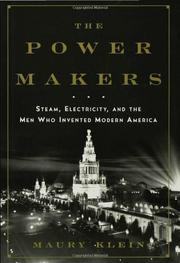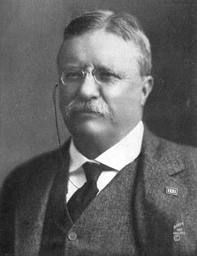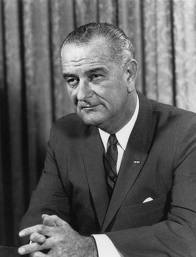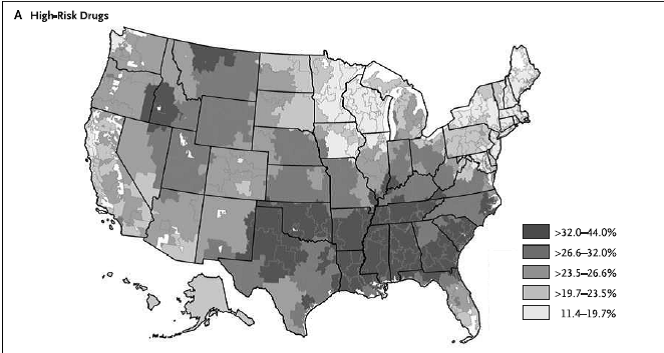 A review of Critical Decisions was recently published in The American Journal of Bioethics. You can check it out here.
A review of Critical Decisions was recently published in The American Journal of Bioethics. You can check it out here.
(Click here to view comments)
What Bracketology Teaches Us About Banking
 A dozen years ago, my wife filled out an NCAA bracket on a popular website. Out of more than 1 million entries, she finished somewhere around 17th.
A dozen years ago, my wife filled out an NCAA bracket on a popular website. Out of more than 1 million entries, she finished somewhere around 17th.
Think about it: 17th out of a million. Clearly I married up! I mean everyone says their spouse is one in a million, but how many really mean it?
So how impressed should any of us be by my wife’s bracketology success? And what does her success tell us about the brilliance of this year’s top investment managers?
Let’s be honest. Most years, in most offices, the winning NCAA bracket comes from someone who is far from an expert on college basketball. In fact, it almost has to be that way. Knowledgeable people do not pick VCU to make it to the final four, or Lehigh to beat Duke. By the end of this year’s NCAA tournament, the person with the top ranking bracket in the country will have to have picked several early round upsets. And picking upsets is mainly a function of luck, not skill… (Read more and view comments at Forbes)
Bad News for Primary Care Providers Serving Medicaid Populations
According to a recent Forbes post: “A huge pay raise promised under the Affordable Care Act for primary care doctors who treat the nation’s poor covered by Medicaid health insurance is nearly three months behind schedule and may take another three months before it kicks in.” I suggest you look at the entire essay, because it does a great job of summarizing the situation.
Environmental Destruction Pre-Global Warming
 Early in his book The Power Makers, Maury Klein does a fantastic job of explaining the importance that modern energy systems, like steam and electricity, played in human history:
Early in his book The Power Makers, Maury Klein does a fantastic job of explaining the importance that modern energy systems, like steam and electricity, played in human history:
All the achievements of humanity down to about the eighteenth century were constrained by the inability to find more efficient ways to do things beyond the capacity of muscle and tools that, however ingenious, still required muscle to operate them.
He also reveals that even before we burned fossil fuels to generate power, we resorted to other forms of environmental destruction:
A farmer had to cut down an acre of trees to supply enough fuel for a year…By one estimate a farmer spent a third of his time during the year doing the chores that provided fuel for the house—and over time the supply around him dwindled rapidly. Here, as elsewhere, civilization always came at the expense of nature.
I thought those were fascinating facts, well worth sharing.
(Click here to view comments)
Should Your Doctor Pray With You?
 “I can fix this.”
“I can fix this.”
The neurosurgeon was nothing if not confident.
“The cyst is pushing on your spinal cord. If it continues to expand, it will damage your nerves and you may lose the ability to walk. But I can remove the cyst, and cure you.”
The patient was a business school professor, a man comfortable with risk-benefit ratios and complex decisions. He probed for more information. The surgeon was happy to provide him with some numbers.
“There’s an 80 percent chance you’re cured. You sail through surgery. But there is a 3 percent chance of a very bad outcome — death or paralysis. And then a 15-17 percent chance of more minor side effects, things you will recover from.”
The professor was not happy to learn these numbers, but given the inevitability of paralysis if he didn’t get the procedure, the 3 percent figure sounded well worth the risk. So he agreed to undergo the surgery.
Days later, he lay on a bed in the pre-operative suite, an IV in his arm and blue hospital socks adorning his feet. The neurosurgeon came by to check in on him. He re-explained the procedure and its risks. The professor was unmoved. He understood the situation and felt good about his chances. Then, just when it looked like the surgeon would head back to the operating room, he instead lowered his head and held the professor’s hands… (Read more and view comments at The Atlantic)
Why James Bond Needs to Wear Condoms
 Think of the last few times you watched a popular movie that involved any kind of sex scene? Not as in pornographic sex, but as in two characters ended up in bed together and had, ahem, conjugal relations.
Think of the last few times you watched a popular movie that involved any kind of sex scene? Not as in pornographic sex, but as in two characters ended up in bed together and had, ahem, conjugal relations.
In how many of those scenes did either participant make mention of a condom before the act?
We face a public health crisis of sexually transmitted diseases and unwanted pregnancies, in large part because so few people use condoms. According to CDC estimates, Americans experienced 20 million new sexually transmitted infections in 2012, with half of those striking America’s youth. The majority of these infections could have been prevented by condoms.
There are lots of reasons people do not make enough use of these life-saving prophylactics. Unplanned sex happens, where neither partner is prepared. More often, neither party wants to spoil the moment… (Read more and view comments at Forbes)
The Ideal President: Someone Who Isn't Running for Office?
 In 1895, Teddy Roosevelt was asked if he was hoping some day to be President. He flew off in a rage. Part of his rant is revealing, and might have helped Mitt Romney if he’d come across this quote earlier in his life:
In 1895, Teddy Roosevelt was asked if he was hoping some day to be President. He flew off in a rage. Part of his rant is revealing, and might have helped Mitt Romney if he’d come across this quote earlier in his life:
“I must be wanting to be President. Every young man does. But I won’t let myself think of it; I must not, because if I do, I will begin to work for it, I’ll be careful, calculating, cautious in word and act, and so—I’ll beat myself!”
Perhaps in today’s media saturated world, this approach won’t work as well. On the other hand, I have to wonder whether people could overcome Romney’s calculatedness, his calculated cautiousness. I’m no expert on political campaigns. But as a citizen I’ll say this: I’d love to see more candidates who haven’t spent their lives preparing for a Presidential run, and who have not been afraid to be bold.
(Click here to view comments)
Would Tactics like the New York Soda Ban Work?
 Although blocked for now, New York Mayor Michael Bloomberg’s Soda Ban has many wondering what tactics could actually help consumers kick certain bad habits? Threats? Pricing? Bans? Graphic images? What actually works and what role should the government play? I recently had the pleasure of participating in a discussion addressing all these questions. Listen to the discussion here to get a sense of the varied views, opinions, and concerns surrounding the issue!
Although blocked for now, New York Mayor Michael Bloomberg’s Soda Ban has many wondering what tactics could actually help consumers kick certain bad habits? Threats? Pricing? Bans? Graphic images? What actually works and what role should the government play? I recently had the pleasure of participating in a discussion addressing all these questions. Listen to the discussion here to get a sense of the varied views, opinions, and concerns surrounding the issue!
LBJ and the Initial Cost of Medicare
 When Johnson was pushing congress to establish the nation’s first real health care funding, many legislators, especially conservative southern Democrats, balked at the cost. Johnson was well aware that Medicare would be costly. But he thought health insurance was too important, in reducing poverty among elderly people, to let costs get in the way. He persuaded these legislators in his famously raconteurish way:
When Johnson was pushing congress to establish the nation’s first real health care funding, many legislators, especially conservative southern Democrats, balked at the cost. Johnson was well aware that Medicare would be costly. But he thought health insurance was too important, in reducing poverty among elderly people, to let costs get in the way. He persuaded these legislators in his famously raconteurish way:
I’ll take care of that, I’ll do that. . . . When they asked me, do you want to put in anothe 400 or 500 million [to cover Mills’s Medicare expansion], . . . what did I say about it? . . . I said we had an old judge in Texas one time . . . we called him Al Caldy . . . old Al Caldy Roberts, and he said, when they talked to him one time that he might’ve abused the Constitution and he said, “What’s the Constitution between friends?” And I say, tell Wilbur that 400 million’s not going to separate us friends when it’s for health.
Blue State/Red State Difference in Drug Safety?
In a New England Journal of Medicine article from November 18, 2010, Zhang and colleagues map out rates of what are arguably inappropriate prescriptions. For instance this picture shows rates of high risk drugs in Medicare recipients, drugs like Valium (and its cousins) which are known to cause falls and other complications:

This picture shows that WHERE you live often influences medical care, in ways that don’t make any medical sense. It also seems to show higher rates of inappropriate use, the darker areas, in regions which have been voting Republican lately. That raises an interesting irony: If Obamacare improves the quality of Medicare, through any of its quality improvement initiatives, it could end up benefiting Republicans more than Democrats.
(Click here to view comments)
